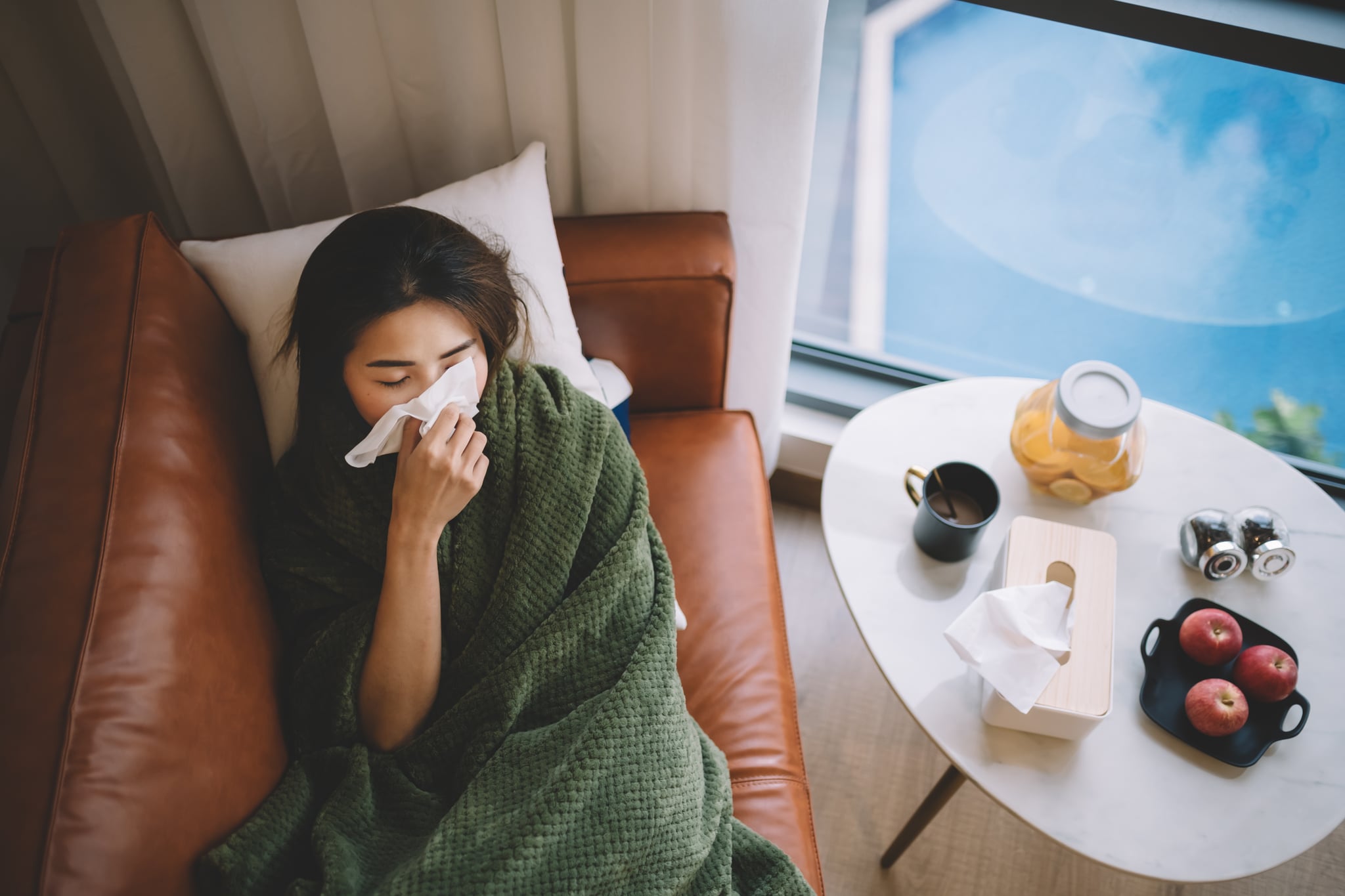The holiday season can come with a lot of extra stress. You’re scrambling to complete work projects before the year ends, perhaps coordinating travel plans, and, oh yeah, trying to avoid getting sick, which is easier said than done during cold, flu, and COVID season.
It’s almost inevitable that you’ll get hit with a cold at some point this winter, even if you’re taking all possible precautions, like wearing a face mask, limiting large indoor gatherings, and washing your hands frequently (and for at least 20 seconds at a time). You should definitely keep all of that up, but germs are persistent, and unfortunately, there’s a chance you’ll pick up a bug in spite of your best efforts. A cold is likely to knock you down for a few days, but it’s very different from COVID and the flu, both of which can be life-threatening (even though all three can share symptoms).
But what happens if you start getting cold or COVID symptoms just before you had planned to get your flu shot? In some cases, you can still plan get it anyway — but there are a couple of major exceptions.
Can I Get a Flu Shot If I Have a Cold?
“If you are just experiencing cold symptoms such as sneezing, runny nose, and congestion, it’s generally fine to go ahead and get your flu shot without having to worry about it being less effective,” Phil Johnson, MD, professor of general internal medicine at McGovern Medical School at the University of Texas Health Science Center at Houston, tells POPSUGAR. “You shouldn’t let a cold prevent you from getting your flu shot altogether. However, if you have a fever of over 99 degrees, it is generally advised to wait until you have recovered and your temperature has returned to normal.” If you have a cold, consider wearing a mask when you go to get your flu shot so you don’t spread germs to those around you.
Even if you do decide to delay your flu shot, fortunately, it’s never too late to get one — while cases of flu often peak between December and February, flu season can last until May, meaning even a shot in January could keep you from getting sick. “The flu is a serious, contagious, and not rare disease that often causes hospitalization and sometimes death, particularly in those most vulnerable such as children, pregnant women, and those with weaker immune systems,” says Carolyn Kaloostian, MD, MPH, a clinical assistant professor of family medicine at the University of Southern California Keck School of Medicine. “The annual flu vaccine has been shown to be the best way to protect your loved ones and yourselves.”
Should I Get a Flu Shot If I Have COVID?
If you’ve tested positive for COVID-19, it’s not advised to go in for your flu shot due to the risk of spreading COVID. If you’re not sure if you have COVID but are showing symptoms, such a sore throat, cough, fever, headache, body aches, fatigue, or loss of taste and smell, take a COVID test before going in for your shot. Even if you test negative, consider wearing a mask to avoid inadvertently spreading COVID (in case of a false negative) or a cold.
It’s also worth noting that the flu vaccine won’t protect you from COVID, but you can get both the COVID and flu vaccines at the same time (again, if you haven’t tested positive for COVID). And as of November 2022, Pfizer is testing out a combined vaccine for both flu and COVID, so stay tuned to see if we’ll be able to cut down our seasonal shots in the next few years.
— Additional reporting by Maggie Ryan

99277 10449Im not sure why but this weblog is loading extremely slow for me. Is anyone else having this concern or is it a dilemma on my finish? Ill check back later and see if the difficulty nonetheless exists. 135056